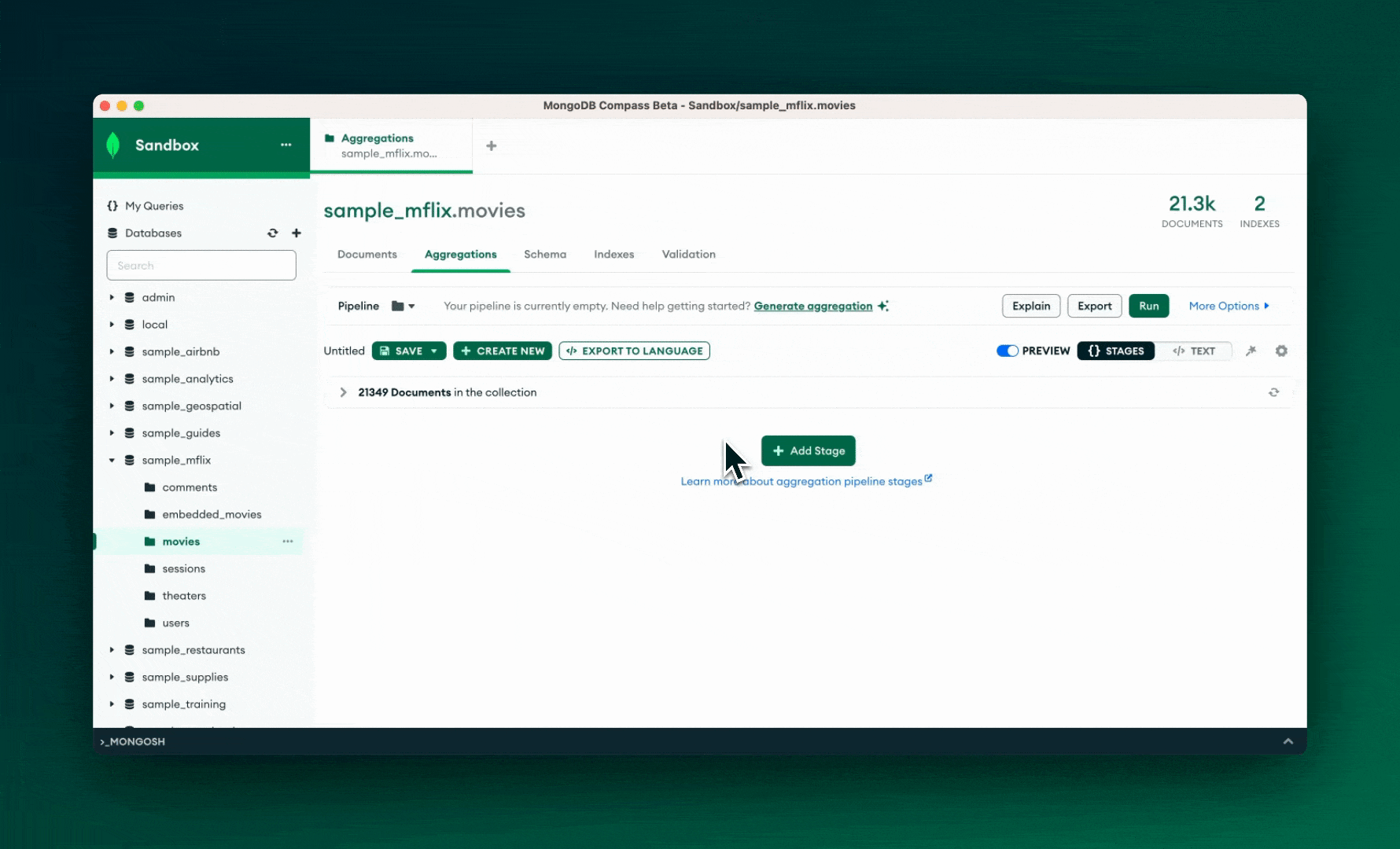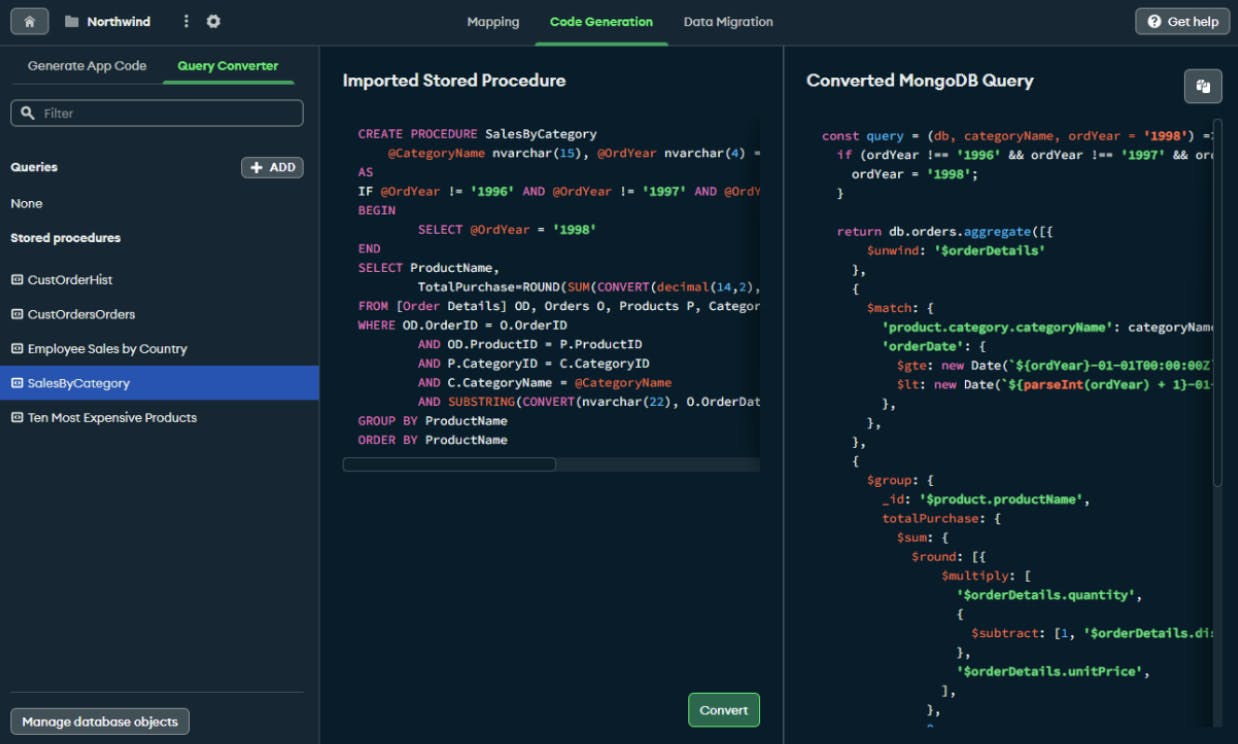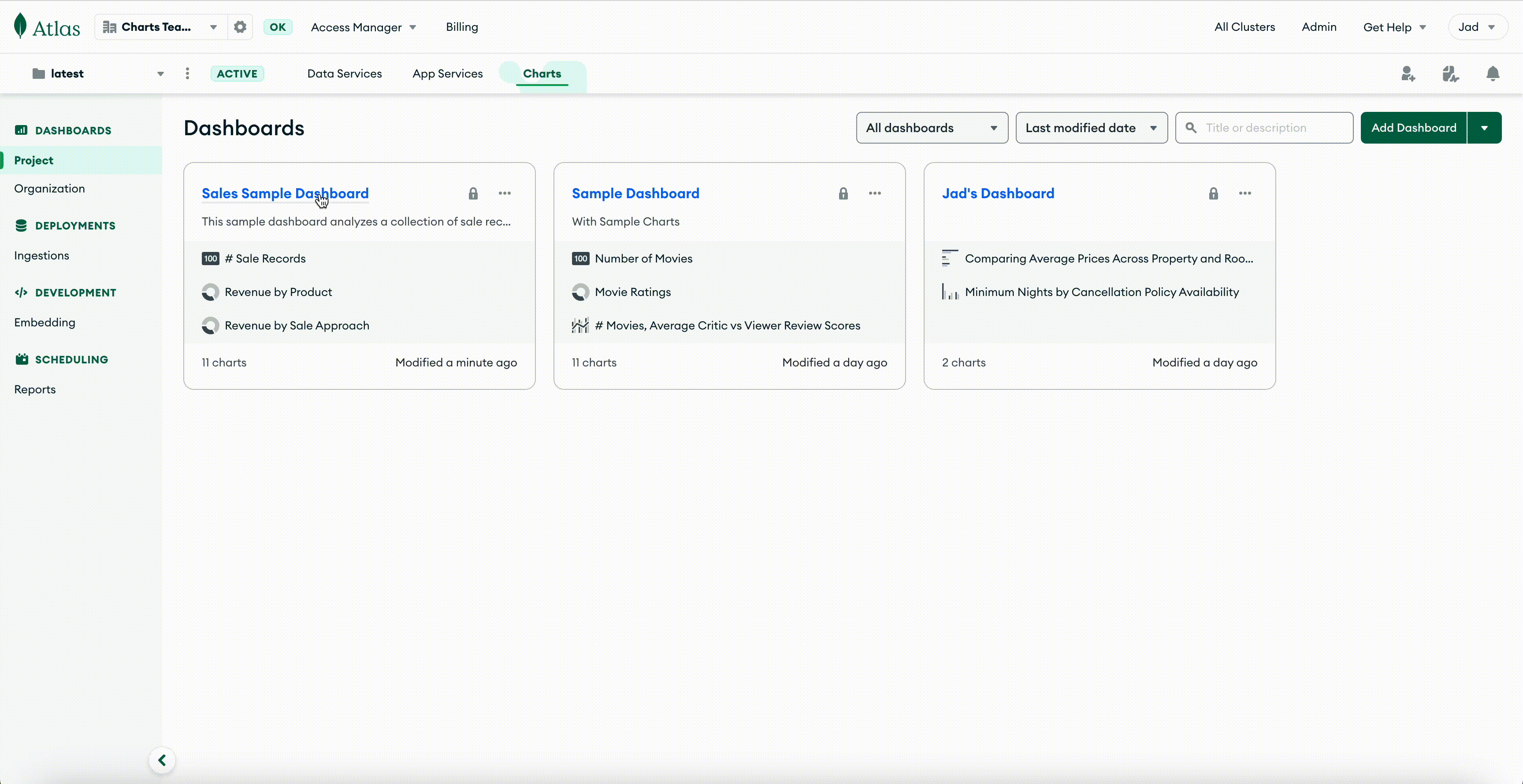_Spot_BS_SpringGreen.png_auto_format_252Ccompress)
Today, MongoDB announced a range of innovations to its modern database, creating new, intelligent developer experiences in familiar tools like MongoDB Compass, Atlas Charts, Relational Migrator, and MongoDB Documentation that radically simplify and accelerate how developers build modern applications.
These new experiences provide developers with guided and intelligent assistance for their development processes in:
MongoDB Compass: Where developers can use natural language to compose everything from simple queries to sophisticated, multi-stage aggregations.
MongoDB Relational Migrator: Where developers can convert SQL queries to MongoDB Query API syntax.
MongoDB Atlas Charts: Where developers can use natural language to generate basic data visualizations.
MongoDB Documentation: Where developers can ask questions to an intelligent chatbot, built on top of MongoDB Atlas and Atlas Vector Search, to enable lightning-fast information discovery and troubleshooting during software development.
Developer time is one of the most precious commodities in any organization, and with business and customer expectations continuing to rise, developers are under increasing pressure to deliver applications quickly. With more intelligent experiences across the MongoDB modern database, it is now simpler and easier than ever to build modern applications for virtually any use case.
Check out our AI Learning Hub to learn more about building AI-powered apps with MongoDB.
Natural Language Queries in Compass
Building queries and aggregations is one of the most prominent developer use cases for Compass, MongoDB’s popular, downloadable GUI tool. Compass’ new, intelligent experience allows developers to use natural language to compose sophisticated aggregations to query, transform, and enrich data, reducing the complexity and learning curve to build queries into application code.
The new experience is being released in Public Preview in version 1.40.0 and will be rolled out incrementally to users starting today until the end of October.
To get started, make sure you have 1.40.0 downloaded on your machine and have access to the feature. Then you can navigate to the Documents tab and click on the Generate Query button in the query bar, which opens a second bar below the standard query bar where you can enter natural language prompts to generate the Query API syntax for you to execute against your data. Be sure to hit the “thumb’s up” or “thumb’s down” button to rate the helpfulness of the query generated.

SQL Query Conversion in Relational Migrator
Migrations are part of many developers’ journeys with MongoDB. Earlier this summer at MongoDB.Local NYC, we announced Relational Migrator to help teams with these projects, and we’re continuing to make it easier to modernize application code.
Many legacy systems have hundreds, if not thousands of SQL queries that must be modernized as part of any migration effort, and that can be a time-consuming, if not daunting task. Now in Private Preview, developers can use Relational Migrator to convert existing SQL queries and stored procedures into development-ready MongoDB Query API syntax.

With SQL query conversion, developers can leverage Relational Migrator to eliminate the manual effort of creating MongoDB queries at scale - speeding up migration projects.
SQL query conversion is currently available in Private Preview, and access can be requested directly from the latest version of Relational Migrator.
Natural Language Support in Atlas Charts
Atlas Charts is the best way for developers to visualize Atlas data. By offering an effortless and powerful solution for gaining data-driven insights, Charts empowers developers and the businesses they help scale.
What has always been easy is now becoming more intelligent too! Available in Private Preview, a new natural language mode allows developers to visualize their data through a simple language query, for example: “show me a comparison of annual revenue by country and product.” This is just the start. Later this year, natural language support will extend to more complex queries and chart types.

Sign up today to try out natural language support for building charts! Stay tuned for more updates from the team and check out our documentation to learn more about what’s supported by natural language during Private Preview!
Intelligent Chatbot for MongoDB Documentation
Documentation is critical to the developer experience, making it easier to discover product features and capabilities and troubleshoot common challenges during software development. MongoDB is now super-charging your experience with an intelligent chatbot that improves information discovery by surfacing and summarizing the most relevant documentation.
Built with MongoDB Atlas and Atlas Vector Search, the chatbot allows you to ask questions in natural language like “How do I get started with MongoDB Atlas?” or “How do I add a new IP address to the IP access list for my Atlas project?” and receive a response with reference articles, code examples, and other relevant information.
.gif)
MongoDB will also be open-sourcing and providing educational materials about how we built the intelligent chatbot, making it that much easier for others in the community to use the power of MongoDB Atlas and Atlas Vector Search to create dynamic and educational experiences for their end users.
Data Privacy and Security
MongoDB is trusted by some of the world's most security-conscious organizations, who use the modern database's robust data security and privacy controls to manage their most sensitive data assets. To maintain this trust, these new developer experiences will always be transparent about what data is accessed and used, allowing customers to make informed decisions within the boundaries of their unique security, privacy, and compliance concerns.
Get Started Today
With new, intelligent features that allow developers to interact with their data using natural language in Compass, Relational Migrator, and Charts, as well as an intelligent chatbot for MongoDB Documentation, it’s easier than ever to take advantage of the flexibility and scalability of MongoDB's document data model to build any class of application.
If you have feedback on these experiences, you can enter a suggestion in our user feedback portal.